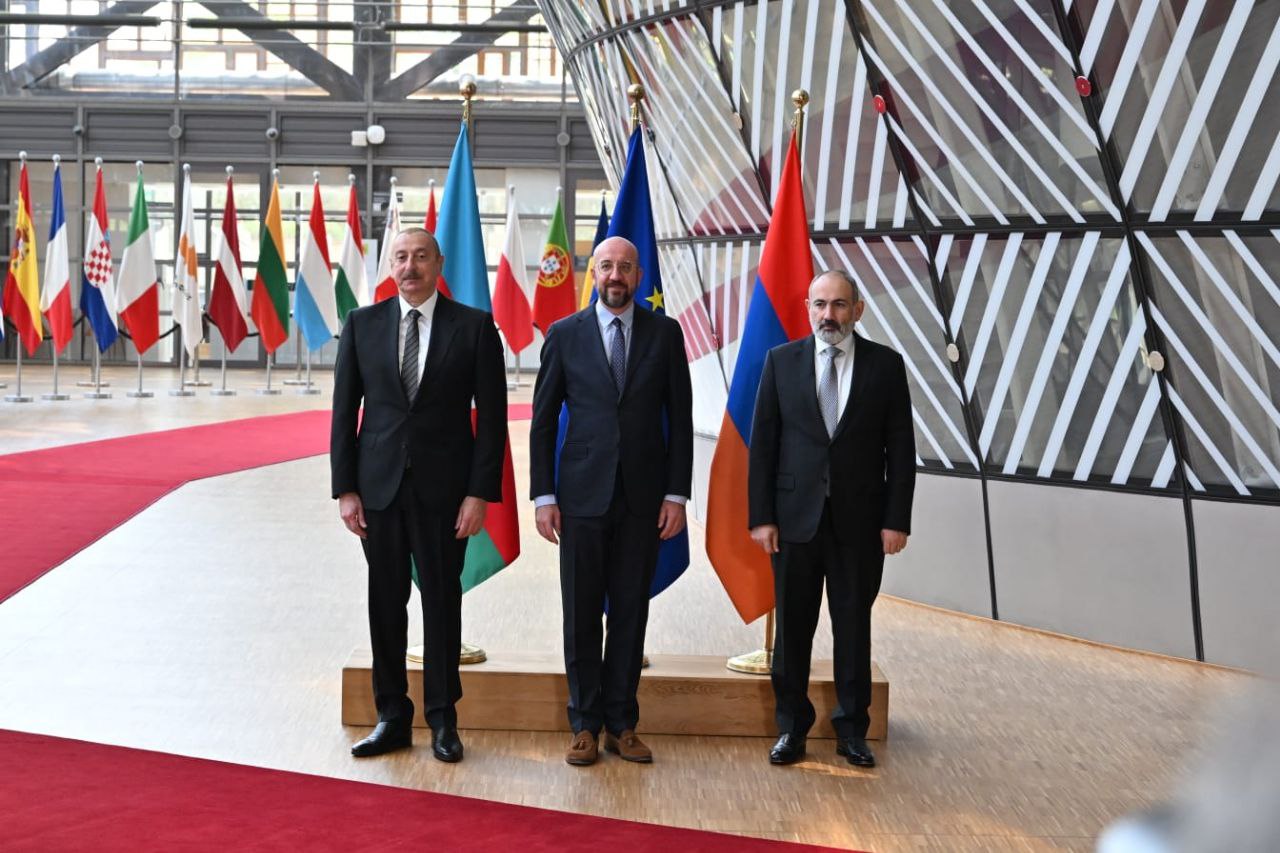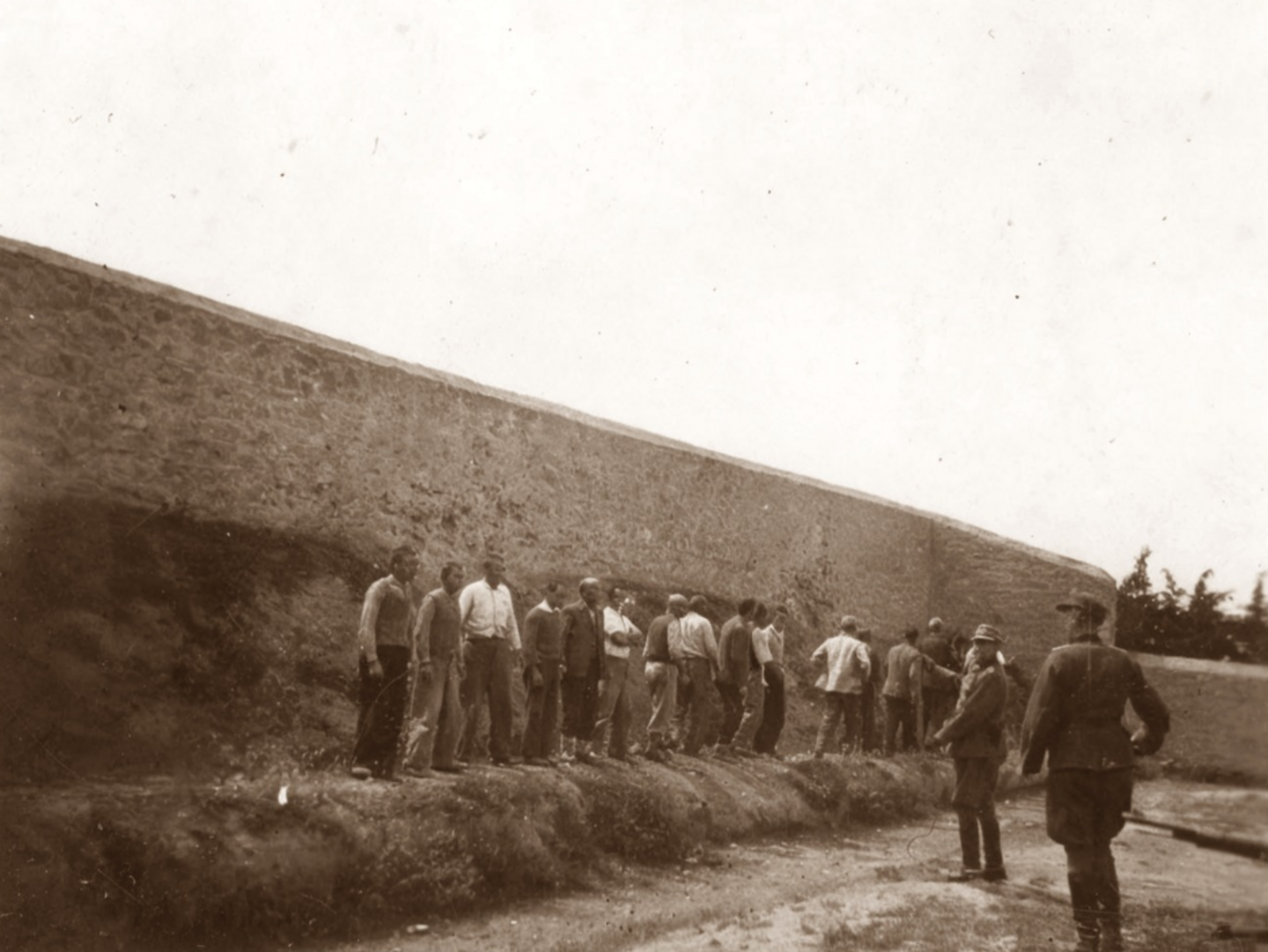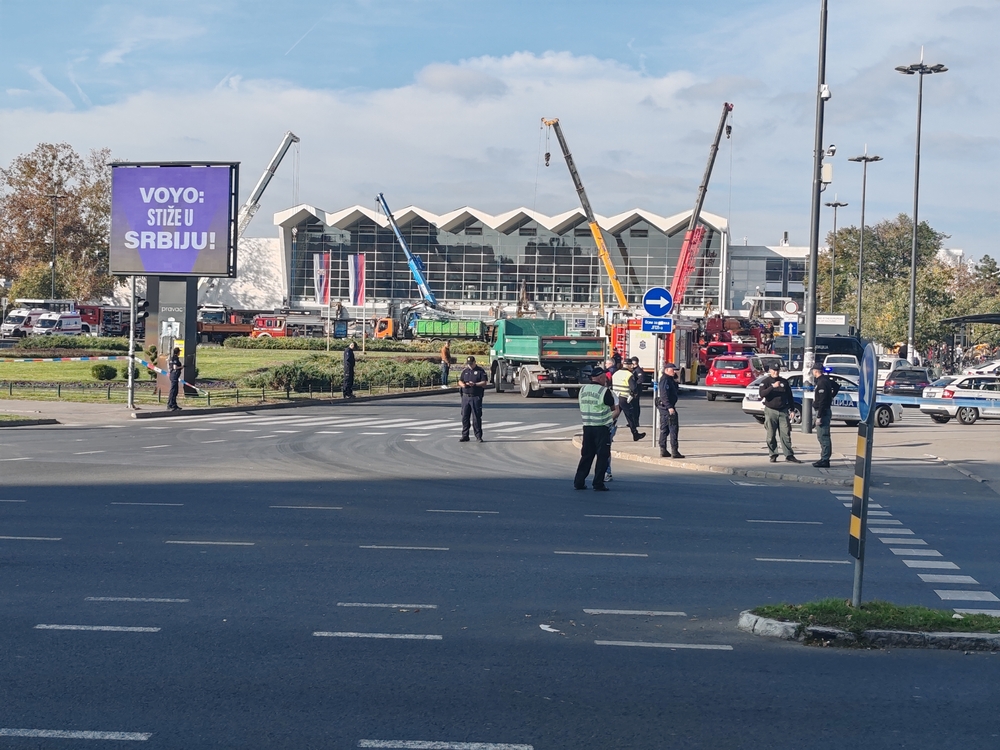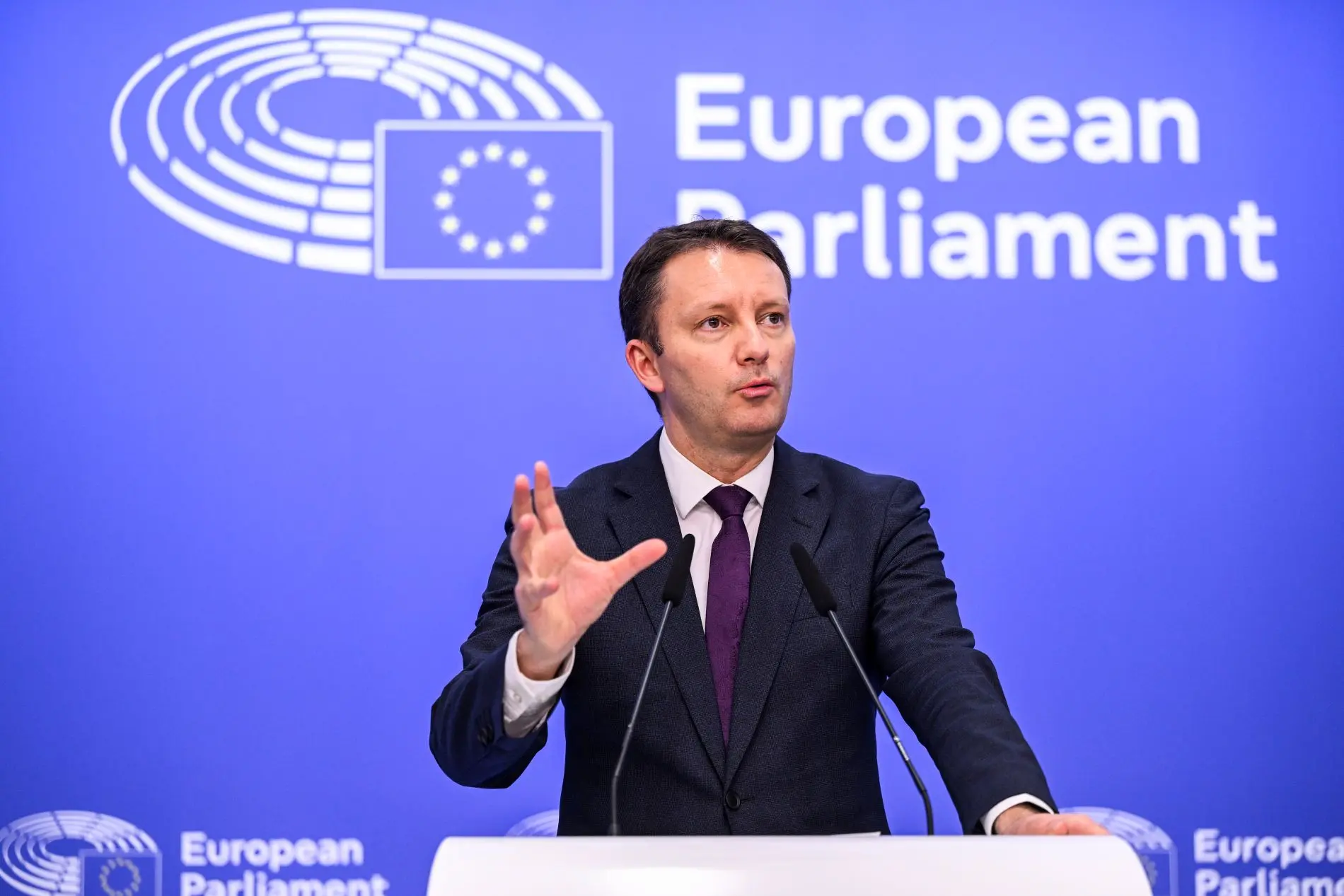Armenia-Azerbaijan, possible progress registered at Brussels meeting
On Sunday, 14 May, Armenian Prime Minister Nikol Pashinyan and Azerbaijan President Ilham Aliyev met in Brussels for renewed talks hosted by European Council President Charles Michel. Still many unresolved points but some small progress appears

Armenia-Azerbaijan-possible-progress-registered-at-Brussels-meeting
Brussels, 14 May 2023. Azerbaijani President Ilham Aliyev, European Council President Charles Michel and Armenian Prime Minister Nikol Pashinyan
On Sunday, 14 May, Armenian Prime Minister Nikol Pashinyan and Azerbaijan President Ilham Aliyev met in Brussels for renewed talks hosted by European Council President Charles Michel. It was the fifth such meeting organised by Michel and it marked a resumption of the Brussels Process. Last year, the talks to normalise relations between the two countries appeared to stall in early December, when Armenia advocated for the inclusion of French President Emmanuel Macron. Azerbaijan rejected the request and the talks did not take place.
The meeting also followed reported progress in talks between the Armenian and Azerbaijani Foreign Ministers, Ararat Mirzoyan and Jeyhun Bayramov, hosted by U.S. Secretary State Antony Blinken in Arlington, Virginia, on 1-4 May. Both sets of talks come amid what appears to be a new wave of efforts to resolve the long-running conflict between Armenia and Azerbaijan over the breakaway Karabakh region. Around 2.5 years after the 2020 44-day war that left over 6,000 dead on both sides and a totally new security situation on the ground, the meetings were timely.
With both sides highlighting that differences on key issues remained during the U.S. talks, expectations from the Brussels meeting were low, but in a statement released afterwards, Michel described them as ‘result-oriented’ and there appeared to be progress in key areas. The leaders agreed to embark on further efforts to delimit the volatile Armenia-Azerbaijan border. Just days before the Brussels event, skirmishes had already left dead and wounded.
Michel highlighted that the territory of Armenia comprised 29,800 and Azerbaijan 86,600 square kilometres. Though Pashinyan had used the first figure to highlight Armenia’s territorial integrity in his own speeches, this marked the first time that Azerbaijan’s was spelled out too, albeit only publicly by Michel. His comments, however, would have been agreed by both sides with most interpreting this as further recognition by Pashinyan, again recognising Karabakh as part of Azerbaijan.
Even the term used by Michel stood out. Talking about the former Nagorno Karabakh Autonomous Oblast (NKAO) rather than “Nagorno Karabakh” was likely a compromise between Yerevan and Baku to avoid further dispute over terminologies. It is also believed that the future of Karabakh will be discussed in a separate negotiation track between representatives of the ethnic Armenian population and Baku through an ‘internationally visible’, though not necessarily ‘internationally mediated’, mechanism.
“I encouraged Azerbaijan to engage in developing a positive agenda with the aim of guaranteeing the rights and security of this population, in close cooperation with the international community”, Michel said in his statement. "I also raised the need for a transparent and constructive dialogue between Baku and this population”.
There was also apparent progress on another key issue that has divided the sides – unblocking transport and economic links in the region. The recent establishment of a checkpoint by Azerbaijan on the “Lachin Corridor”, as defined in the 2020 trilateral ceasefire statement, can be considered in the context of facilitating transit from Azerbaijan to its exclave of Nakhchivan through Armenia, as mentioned in the 2020 armistice. Disagreements between the sides over whether checkpoints should be on one but not the other have long disrupted negotiations.
This issue of reciprocity was again implied by Michel.
"Positions on this topic have now come very close to each other in particular on the reopening of the railway connections to and via Nakhchivan”, Michel stated. "Their respective teams have been tasked to finalise an in-principle agreement on the modalities for the opening of the railway connections and the necessary construction works together with a concrete timetable. They also agreed to draw upon the support of the World Customs Organisation in supporting this work".
Other issues were of a humanitarian nature, namely missing persons and landmines. Though a serious issue for both sides, they are particularly relevant for Azerbaijan, including the fate of the missing from the first Karabakh war in the early 1990s. The fate of Armenian detainees from the second war that are still held in Baku also appeared to be raised, but so was that of "soldiers who have simply got lost and crossed to the other side would continue to be released through a speedy procedure”.
One of two Azerbaijani soldiers that did just that was sentenced to 11.5 years in prison by an Armenian court earlier this month. It is also possible that some Armenian detainees in Azerbaijan could be released “in the coming weeks”.
“Following the recent positive talks held in the United States on the peace treaty, the momentum should be maintained to take decisive steps towards the signing of a comprehensive peace agreement between Armenia and Azerbaijan”, concluded Michel, adding that the two leaders will meet again on 1 June in Chişinău, Moldova, on the sidelines of the second European Political Community Summit. The first resulted in the deployment of the European Monitoring Capacity (EUMCAP), now replaced by the longer European Union Monitoring Mission in Armenia (EUMA).
Despite the optimism, however, some potential issues remain, with Moscow irked by the EU’s involvement in the Armenia-Azerbaijan process that would essentially override the 2020 Russian-backed trilateral ceasefire statement. Some observers believe that both the U.S. and the EU see normalisation as a way to ease Moscow out of Karabakh and possibly the region, a view Michel possibly sought to address. “The EU has no hidden agenda”, he said, also adding that another meeting between the Armenian and Azerbaijani leaders could take place at the ECP summit in Spain in October.
Others, however, remain skeptical, and Moscow is unlikely to take mention of the World Customs Union governing the modalities of the Azerbaijan-Nakhchivan rail link well. In the 2020 ceasefire statement, Russia expected to exert control over both it and the Lachin Corridor. Developments over the coming days and weeks will therefore be critical in unpacking the significance of last weekend’s meeting and hopes for a breakthrough in resolving the Karabakh conflict. They will also impact hopes for Armenia-Turkey normalisation.
Armenia-Azerbaijan, possible progress registered at Brussels meeting
On Sunday, 14 May, Armenian Prime Minister Nikol Pashinyan and Azerbaijan President Ilham Aliyev met in Brussels for renewed talks hosted by European Council President Charles Michel. Still many unresolved points but some small progress appears

Armenia-Azerbaijan-possible-progress-registered-at-Brussels-meeting
Brussels, 14 May 2023. Azerbaijani President Ilham Aliyev, European Council President Charles Michel and Armenian Prime Minister Nikol Pashinyan
On Sunday, 14 May, Armenian Prime Minister Nikol Pashinyan and Azerbaijan President Ilham Aliyev met in Brussels for renewed talks hosted by European Council President Charles Michel. It was the fifth such meeting organised by Michel and it marked a resumption of the Brussels Process. Last year, the talks to normalise relations between the two countries appeared to stall in early December, when Armenia advocated for the inclusion of French President Emmanuel Macron. Azerbaijan rejected the request and the talks did not take place.
The meeting also followed reported progress in talks between the Armenian and Azerbaijani Foreign Ministers, Ararat Mirzoyan and Jeyhun Bayramov, hosted by U.S. Secretary State Antony Blinken in Arlington, Virginia, on 1-4 May. Both sets of talks come amid what appears to be a new wave of efforts to resolve the long-running conflict between Armenia and Azerbaijan over the breakaway Karabakh region. Around 2.5 years after the 2020 44-day war that left over 6,000 dead on both sides and a totally new security situation on the ground, the meetings were timely.
With both sides highlighting that differences on key issues remained during the U.S. talks, expectations from the Brussels meeting were low, but in a statement released afterwards, Michel described them as ‘result-oriented’ and there appeared to be progress in key areas. The leaders agreed to embark on further efforts to delimit the volatile Armenia-Azerbaijan border. Just days before the Brussels event, skirmishes had already left dead and wounded.
Michel highlighted that the territory of Armenia comprised 29,800 and Azerbaijan 86,600 square kilometres. Though Pashinyan had used the first figure to highlight Armenia’s territorial integrity in his own speeches, this marked the first time that Azerbaijan’s was spelled out too, albeit only publicly by Michel. His comments, however, would have been agreed by both sides with most interpreting this as further recognition by Pashinyan, again recognising Karabakh as part of Azerbaijan.
Even the term used by Michel stood out. Talking about the former Nagorno Karabakh Autonomous Oblast (NKAO) rather than “Nagorno Karabakh” was likely a compromise between Yerevan and Baku to avoid further dispute over terminologies. It is also believed that the future of Karabakh will be discussed in a separate negotiation track between representatives of the ethnic Armenian population and Baku through an ‘internationally visible’, though not necessarily ‘internationally mediated’, mechanism.
“I encouraged Azerbaijan to engage in developing a positive agenda with the aim of guaranteeing the rights and security of this population, in close cooperation with the international community”, Michel said in his statement. "I also raised the need for a transparent and constructive dialogue between Baku and this population”.
There was also apparent progress on another key issue that has divided the sides – unblocking transport and economic links in the region. The recent establishment of a checkpoint by Azerbaijan on the “Lachin Corridor”, as defined in the 2020 trilateral ceasefire statement, can be considered in the context of facilitating transit from Azerbaijan to its exclave of Nakhchivan through Armenia, as mentioned in the 2020 armistice. Disagreements between the sides over whether checkpoints should be on one but not the other have long disrupted negotiations.
This issue of reciprocity was again implied by Michel.
"Positions on this topic have now come very close to each other in particular on the reopening of the railway connections to and via Nakhchivan”, Michel stated. "Their respective teams have been tasked to finalise an in-principle agreement on the modalities for the opening of the railway connections and the necessary construction works together with a concrete timetable. They also agreed to draw upon the support of the World Customs Organisation in supporting this work".
Other issues were of a humanitarian nature, namely missing persons and landmines. Though a serious issue for both sides, they are particularly relevant for Azerbaijan, including the fate of the missing from the first Karabakh war in the early 1990s. The fate of Armenian detainees from the second war that are still held in Baku also appeared to be raised, but so was that of "soldiers who have simply got lost and crossed to the other side would continue to be released through a speedy procedure”.
One of two Azerbaijani soldiers that did just that was sentenced to 11.5 years in prison by an Armenian court earlier this month. It is also possible that some Armenian detainees in Azerbaijan could be released “in the coming weeks”.
“Following the recent positive talks held in the United States on the peace treaty, the momentum should be maintained to take decisive steps towards the signing of a comprehensive peace agreement between Armenia and Azerbaijan”, concluded Michel, adding that the two leaders will meet again on 1 June in Chişinău, Moldova, on the sidelines of the second European Political Community Summit. The first resulted in the deployment of the European Monitoring Capacity (EUMCAP), now replaced by the longer European Union Monitoring Mission in Armenia (EUMA).
Despite the optimism, however, some potential issues remain, with Moscow irked by the EU’s involvement in the Armenia-Azerbaijan process that would essentially override the 2020 Russian-backed trilateral ceasefire statement. Some observers believe that both the U.S. and the EU see normalisation as a way to ease Moscow out of Karabakh and possibly the region, a view Michel possibly sought to address. “The EU has no hidden agenda”, he said, also adding that another meeting between the Armenian and Azerbaijani leaders could take place at the ECP summit in Spain in October.
Others, however, remain skeptical, and Moscow is unlikely to take mention of the World Customs Union governing the modalities of the Azerbaijan-Nakhchivan rail link well. In the 2020 ceasefire statement, Russia expected to exert control over both it and the Lachin Corridor. Developments over the coming days and weeks will therefore be critical in unpacking the significance of last weekend’s meeting and hopes for a breakthrough in resolving the Karabakh conflict. They will also impact hopes for Armenia-Turkey normalisation.









